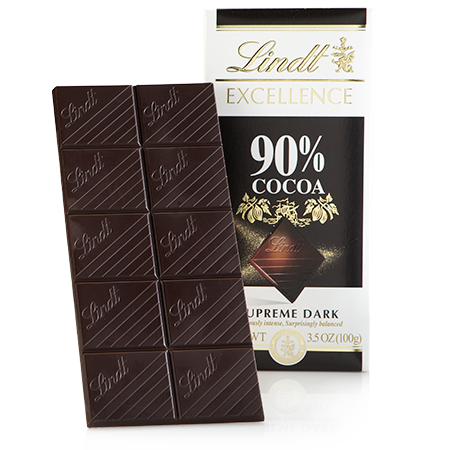The power of chocolate, China’s got all the masks, the sun shines on Georgia, and more
19 Feb 2020
Posted by Andrew Kantor
One of those days
GPhA sent out an e-mail yesterday: The Board of Directors wants to hear from you about your workplace conditions.
Of course, that was the day that our e-mail system decided to have a little glitch, so anyone who sent a message in the morning found that it bounced. (By law, IT glitches only happen on important stuff and always in the dead of night.)
The GPhA BoD still wants to hear from you. Here’s a link (again) to President Chris Thurmond’s letter about the issue; send your comments to mritchie@gpha.org. Or, if you prefer, membership@gpha.org is working again.
Call for nominations!
GPhA is now accepting applications for its 2020–2021 Board of Directors. Help set the goals of the association — what services to offer, what policies to support, how best to use the association’s resources, and more.
There are three seats open for the 2020-21 board: two at-large and one representing the Academy of Clinical and Health System Pharmacists. All are three-year terms.
GPhA encourages applications from all pharmacy practice settings. Visit GPhA.org/2020board for all the details and an application.
The deadline for applications is 11:59 p.m. EST on March 13, 2020.
Think like a vampire
Georgia ranks #4 for states for the highest risk of melanoma due to ultraviolet radiation, according to a new study — only Hawai’i, Utah, and Delaware have greater exposure. (California is #5, and Florida, the Sunshine State, is ranked #8.)
Walking for chocolate
Chocolate: You’re not just a delicious reason for living, you might also help people with peripheral artery disease. Really.
Patients with peripheral artery disease (PAD) who consumed a flavanol-rich cocoa beverage three times daily for six months saw significant improvements in their 6-minute walking distance compared to a placebo, in a small, phase II randomized study.
Pro tip: No, a Hershey’s bar won’t do the trick. It’s all about the epicatechin, a flavanol usually found in dark (85%+) chocolate.
Smaller payout
The National Opioids Settlement is still being worked out in Ohio. Certainly some major pharmaceutical companies will be paying billions for their role in the opioid epidemic, but the latest news is that the payout may be a lot less than originally expected. In fact, it may be less than half what Big Tobacco paid in 1998.
The money is meant to reimburse states, cities, and towns for “treatment and prevention programs, emergency services, law enforcement and other measures needed to fix the problems created by opioids.”
Whatever the final amount, it will certainly fall well short of what public health experts say is needed to heal the long-term effects of the opioid crisis.
Today’s research shocker
From the University of Pennsylvania: “People who rely on social media for information were more likely to be misinformed about vaccines than those who rely on traditional media.”
Lucy in the sky with dollars
If you’re still thinking about the whole medical-marijuana industry, welcome to 2020. Now it’s time to look at the companies planning to bring psychedelics to market.
[A] growing number of companies are conducting clinical trials of psychedelic treatments for everything from depression to post-traumatic stress disorder, and some have recently received the blessing of the U.S. Food and Drug Administration. This has created a legal way for these companies to conduct research on otherwise illegal drugs, opening the door to public listings.
Successful Parkinson’s drug trial
A phase II clinical trial of ambroxol — the respiratory drug — as a treatment for Parkinson’s brings good news. No, it’s not a cure, but it improved motor function, and looks like a candidate for the next step.
The results showed that ambroxol was safe and well tolerated with no reported adverse events during the study. The drug was also found to cross the blood brain barrier and it achieved […] a 35% increase overall in GCase protein levels found in participants’ cerebrospinal fluid.
Irony alert
Most N95 masks — the kind that might actually protect you from the coronavirus — are made in China. And the one U.S. manufacturer is a bit ticked that no one listened when he warned about this very scenario.
Double irony: Those masks are only useful if you’re walking around among infected people, like in a hospital. They won’t do your average Joe on the Street much good.
Final blow: Where is this panic over the flu, which has infected at least 22 million Americans and killed 12,000?
Fun fact: The U.S. government has a secret (well, formerly secret) stash of protective gear.
Drug safety prize
Tobias Gerhard, PhD, of Rutgers won the fourth annual Sternfels Prize for Drug Safety Discoveries for his proposal for finding a better way to know which drugs within a class will provide the best outcomes.
Currently, he said, “[M]ost treatment guidelines and insurance formularies consider drugs within medication classes as equally safe and effective, despite having limited evidence.”
The award is given annually “to the most novel, clinically relevant, and testable idea to reduce life-threatening drug-related adverse events.”



